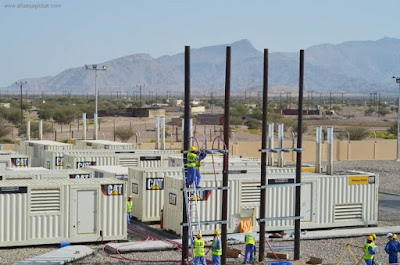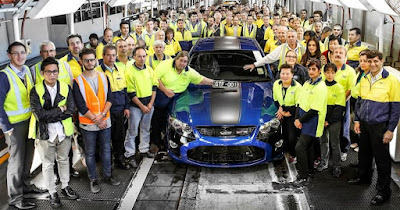Temporary power plants are among the most popular solutions to provide electricity to communities, events, businesses and industries around the world. Temporary power plants can be quickly delivered, installed and powered on, and they do not require a huge capital expenditure on the part of the customer. They are efficiently managed and maintained by the engineers and technicians of the temporary power provider, and can be completely demobilized at the end of the contract.
It is easy to think of temporary power plants in short-term projects of a few megawatts, like in sporting events or concerts. But while temporary power providers cater to such requirements, their scope is more extensive than just “temporarily” providing electricity.
In recent years, the role of rental power plants has transcended being merely “temporary”. The industry is now witnessing projects with contracts of longer duration and of capacities that, at times, can make up a sizable fraction of the grid’s demand. Rental power plants are increasingly being utilized in baseload operation, and modern rental power plants are now able to perfectly integrate with the existing permanent power infrastructure. In certain applications, rental power generation technologies are supplying electricity to entire cities or provinces, or even countries, and are powering thousands of businesses and millions of people.
Rental power suppliers, like leading global rental power company Altaaqa Global Caterpillar Rental Power, are primed to serve projects with longer contract durations and of multi-megawatt capacities. They are able to cater to multi-year, larger-scale requirements from a wide range of industries, including utilities, oil & gas, mining, and manufacturing, to name a few. They are able to supplement a country’s grid capacity; provide on-site power for oil & gas and mining facilities; and supply electricity to process industries, for example.
Let us take a close look at utilities. Utility providers around the world partner with rental power providers for a variety of reasons. They seek the assistance of rental power suppliers when they need a speedy supply of supplemental electricity. Utility providers also collaborate with rental power companies in times of significant power supply constraint, like in hydropower-dependent countries or cities in times of drought or low-rain seasons. Utilities also avail of rental power services while waiting for permanent power plants to be completed, or when they are still in the process of raising capital for the construction of facilities or the expansion of existing grid supply. There are also utilities that hire power plants in times of seasonal shifts in electricity demand, for instance during summer.
On the other hand, mining and oil & gas facilities, being remote from the national grid, hire power plants to provide electricity at every stage of their operations throughout their lifetime. Rental power plants support the electricity needs of mining and oil & gas facilities from the nascent stages up to the most power-intensive processes. Thanks to the scalability of rental power plants, their capacities can be increased (or decreased) according to the needs of the sites.
Process industries, like consumer and industrial manufacturing, turn to rental power not only to provide electricity to their facilities during peak production season but also to ensure the reliable supply of electricity, especially in areas where load shedding is implemented and power outages are frequent. With rental power plants consistently power their operations, manufacturing companies can fulfill their production commitments and delivery obligations to their customers.
As the world’s economies grow, electricity demand will continue to increase and electrification efforts will only intensify. In recognition of this trend, rental power providers, like Altaaqa Global, are continuously working to further improve the technologies of their systems in order to cater a wider range of power requirements of varying contract duration and capacities.
If you have a multi-megawatt rental power requirement, talk to us to find out how our rental power plants can work for you. E-mail us at info@altaaqaglobal.com or at sales@altaaqaglobal.com. Alternatively, you can call us at +971 4 880 8006.
-Ends-
FOR INQUIRIES
Altaaqa Global
Tel: +971 56 1749505
jsanchez@altaaqaglobal.com
It is easy to think of temporary power plants in short-term projects of a few megawatts, like in sporting events or concerts. But while temporary power providers cater to such requirements, their scope is more extensive than just “temporarily” providing electricity.
In recent years, the role of rental power plants has transcended being merely “temporary”. The industry is now witnessing projects with contracts of longer duration and of capacities that, at times, can make up a sizable fraction of the grid’s demand. Rental power plants are increasingly being utilized in baseload operation, and modern rental power plants are now able to perfectly integrate with the existing permanent power infrastructure. In certain applications, rental power generation technologies are supplying electricity to entire cities or provinces, or even countries, and are powering thousands of businesses and millions of people.
Rental power suppliers, like leading global rental power company Altaaqa Global Caterpillar Rental Power, are primed to serve projects with longer contract durations and of multi-megawatt capacities. They are able to cater to multi-year, larger-scale requirements from a wide range of industries, including utilities, oil & gas, mining, and manufacturing, to name a few. They are able to supplement a country’s grid capacity; provide on-site power for oil & gas and mining facilities; and supply electricity to process industries, for example.
Let us take a close look at utilities. Utility providers around the world partner with rental power providers for a variety of reasons. They seek the assistance of rental power suppliers when they need a speedy supply of supplemental electricity. Utility providers also collaborate with rental power companies in times of significant power supply constraint, like in hydropower-dependent countries or cities in times of drought or low-rain seasons. Utilities also avail of rental power services while waiting for permanent power plants to be completed, or when they are still in the process of raising capital for the construction of facilities or the expansion of existing grid supply. There are also utilities that hire power plants in times of seasonal shifts in electricity demand, for instance during summer.
On the other hand, mining and oil & gas facilities, being remote from the national grid, hire power plants to provide electricity at every stage of their operations throughout their lifetime. Rental power plants support the electricity needs of mining and oil & gas facilities from the nascent stages up to the most power-intensive processes. Thanks to the scalability of rental power plants, their capacities can be increased (or decreased) according to the needs of the sites.
Process industries, like consumer and industrial manufacturing, turn to rental power not only to provide electricity to their facilities during peak production season but also to ensure the reliable supply of electricity, especially in areas where load shedding is implemented and power outages are frequent. With rental power plants consistently power their operations, manufacturing companies can fulfill their production commitments and delivery obligations to their customers.
As the world’s economies grow, electricity demand will continue to increase and electrification efforts will only intensify. In recognition of this trend, rental power providers, like Altaaqa Global, are continuously working to further improve the technologies of their systems in order to cater a wider range of power requirements of varying contract duration and capacities.
If you have a multi-megawatt rental power requirement, talk to us to find out how our rental power plants can work for you. E-mail us at info@altaaqaglobal.com or at sales@altaaqaglobal.com. Alternatively, you can call us at +971 4 880 8006.
-Ends-
FOR INQUIRIES
Altaaqa Global
Tel: +971 56 1749505
jsanchez@altaaqaglobal.com




























